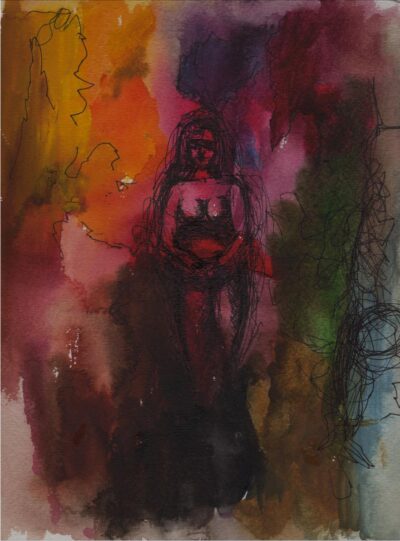Eve, Sarah, and Hagar
 And so it begins – our 7-month book study of Bible Women. We begin today with a look at Eve, Sarah, and Hagar. Imagine you are sitting with a group made up of people who are reading the book along with you. Some opening thoughts are shared and questions are raised. You may be ready to jump in with a comment, or you may want to hear from others first. The comments may take us down one path, but you can always say, “I’d like to go back to what Mary had to say”, or “I’d like to turn the focus to what peaked my interest in the readings.” Feel free to come in and out of the study group because we all have events in our lives that will keep us away from the internet.
And so it begins – our 7-month book study of Bible Women. We begin today with a look at Eve, Sarah, and Hagar. Imagine you are sitting with a group made up of people who are reading the book along with you. Some opening thoughts are shared and questions are raised. You may be ready to jump in with a comment, or you may want to hear from others first. The comments may take us down one path, but you can always say, “I’d like to go back to what Mary had to say”, or “I’d like to turn the focus to what peaked my interest in the readings.” Feel free to come in and out of the study group because we all have events in our lives that will keep us away from the internet.
And so it begins. I wonder if God said that when Eve ate the forbidden fruit? I came to understand Eve better when I read her account in Lindsay Hardin Freeman’s earlier book, The Scarlet Cord. God and Adam took long walks around the garden, leaving Eve alone to become lonelier and lonelier. Have you ever experienced that kind of loneliness? You’ve moved to a new city and your spouse has gone off to work leaving you home alone to handle the housekeeping or perhaps to attempt to meet the needs of little children. Or, your spouse has been placed in an assisted living arrangement and all of a sudden your companion for life has left you alone. So Eve accepted the invitation of the serpent. Well, that got God’s attention, didn’t it? “Then the Lord God said to the woman, ‘What is this that you have done?’ The woman said, ‘The serpent tricked me, and I ate.’”
Sarah seems to be a woman who is never alone. Extended family is always around, and guests are promptly welcomed and cared for. The wealthy household includes slaves and eventually children whom Sarah can call her own. God doesn’t ignore Sarah as he had Eve; he blesses her and gives her a new name for an abundant life. And the Lord promises a son for Abraham and Sarah. “The Lord said to Abraham, ‘Why did Sarah laugh? … Sarah shall have a son.’ Sarah denied, saying, ‘I did not laugh’; for she was afraid. He said, ‘Oh yes, you did laugh.’”
What I find interesting about these two women is that when they are able to have a conversation with God, they both get quite defensive. If God spoke to you, would that be your reaction? Has that ever been your relationship with God?
Finally, there is Hagar. She is the least known of the three women, I think. She does not have the pop culture status of Eve, known to churchgoers and non-churchgoers alike. She doesn’t have the familiarity of being named aloud as Sarah is so often named now in the Great Thanksgiving Eucharistic Prayer C of the Book of Common Prayer. Hagar is a slave out of Egypt, perhaps lonely like Eve, or perhaps like Sarah, surrounded by family members who travel with her, though also slaves. She can’t say that anything is her own, not the father of her son, Abraham, not even her son, Ishmael. Life is harder for a slave and abuse is common. She finds herself banished, with her son in mortal danger. (Here is an example of the challenge and richness of reading Genesis. This story comes from Chapter 16 before Ishmael is born and also from Chapter 21 after Ishmael is born. We often find the same challenge with the Gospels.) God hears Hagar weeping and comes to Hagar in the form of an angel. God promises her that He will make a great nation of her son, Ishmael. And her response is not defensive. She makes no excuses for herself, but rather names God, “You are El-roi”, which means, “the God who sees me.” How open she is to God’s care for her.
How have these 3 women impressed you, both individually and collectively?
What other “For reflection” questions from these Chapter 3 Genesis women jump out for you?
What would you add to the “What might we learn from” lists for Eve, Sarah, and Hagar?
Which of these women do you see portrayed in the illustration above by Clare Elam?
++++ Coming November 15th ++++
Tamar and Tamar’s Midwife
Content provided by Author Lindsay Hardin Freeman
Illustration: Claire Elam


